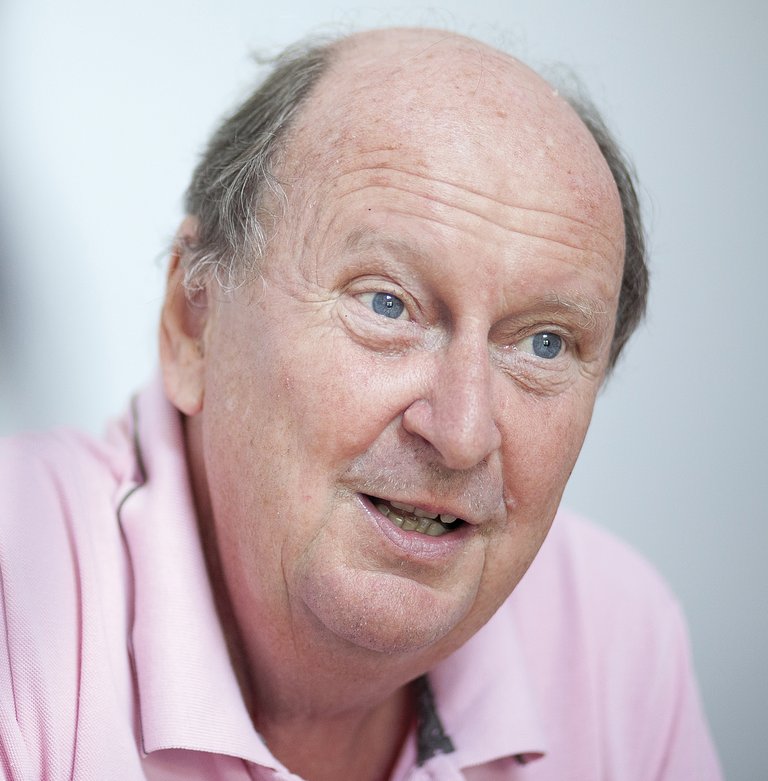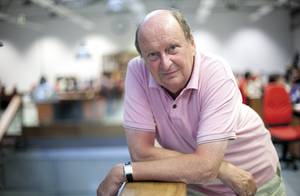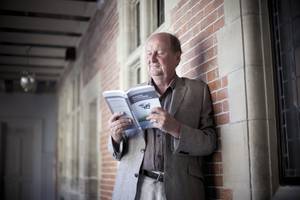"After a long time between science and pseudoscience, it is time to tell the truth"

Yes, I grew up with this type of medicine. The family doctor was homeopath, quite famous in Germany. My father and grandfather were doctors. And I know my father used to treat patients with homeopathy. And almost by chance, when I left the medical school, I got the first place in a homeopathy clinic. There I studied the practical part of some techniques, especially homeopathy, and when I left, year and a half later, I was a great fan of these techniques. I have used them occasionally in my activity.
My perception was that homeopathy works. I still tell you that homeopathy works. There is no doubt. But when I started to study scientifically I got a question: Why is it working? The homeopathic remedy is scientifically inconsistent, there is no scientific explanation for homeopathy to work. Therefore, the question was: Does homeopathy influence something we do not understand scientifically or, if not, how does the patient improve after being with the homeopath? Subsequently numerous investigations were carried out (not only for us, but around the world there are about 200 research and clinical tests on homeopathy). And it was explained very clearly that in the last two decades the homeopathic remedy is placebo and that the therapeutic encounter with the homeopath works. It is like a small psychotherapy that helps the patient. Because if you test your placebo, the result is negative. And if you do an observation study, which really likes homeopaths, without using control groups, it can be shown that 70% of patients improve with homeopathic treatment (these are the numbers approximately). But that has nothing to do with the remedy itself.
He was in Vienna and was the head of a department. But he was not satisfied with Vienna. On one occasion I was reading enthusiastically the NewScientist magazine and I also read the ads under an article. And there I saw that the University of Exeter was looking for a professor to create a chair of complementary medicine. So I took the atlas and looked where Exeter was and it seemed to me an interesting place. I and my wife love living in England. So I decided to apply for the post.

Ed. : Iñigo Ibáñez
He was the first teaching post of alternative medicine. For me it was clear what alternative medicine needed, because until then no one had applied science seriously and systematically to this field. And it is a very broad scope. But when I signed the contract I realized that they got money from a donor and wanted me to be a professor, not a researcher. On paper I had to give classes and educate people. I told them no. I could not do it. It wasn't good at that, it wasn't my specialty or my goal. And they told me they knew I was a researcher and they hired me to be a researcher. That the contract was only a piece of paper. And they gave me the opportunity to do what I wanted.
The BBC network was developing a program on alternative medicine. And I was your advisor. The program consisted of four parts, one of them dedicated to acupuncture. Those of the BBC taught me the script, the full text, but not the images.
Simon saw the program and complained to the BBC. He said he was very misleading. He called me by phone and said: "How can you accept it? Have you seen it? It's not good, mix the spectators." And I told him that he was as worried as he was. And with my help he sent a complaint to the BBC. At first they rejected the complaint, but finally accepted it. The BBC had to correct the error. To a large extent, Simon and I came together because we had a debate. Then we were in front and arranged very well. He had a lot of interest in alternative medicine and it was evident that he would be his next book. He proposed to make a book together and I told him no. I did not want to make a book.
I did not know who I was. I did not know that I wrote best-sellers. It was a very nice guy and I liked it. And we were doing very well, but I knew it would be very difficult and a great challenge to write a book on a controversial topic along with another. We would have different views, although they were similar. That's why I told him no. But he did not resign himself. It has great capacity for persuasion. I searched Google and read information about it. I loved that such a person would like to write a book with me and I told him that we would try. But if it did not work well or we had different visions, the book would be nullified. So we tried it and it worked.
It is a good question, a question that prevents me from sleeping at night. In short, in the last two decades of my life I have tried to build bridges between science and alternative medicine (antiscience or pseudoscience). Then Simon came and told me to write the book. He has not gone through the process of trying to understand the point of view of others. His vision is not tolerant with healers, fraudulent and placebo... Therefore, the book has remained more radical than if I had written it alone.

On the other hand, after a long time between two worlds, it is time to tell the truth. And this book is dedicated to the truth. That is why I am pleased that the book is radical. I would not write such a radical book, because it seems important to me to reach those who are believers. It is important, but perhaps impossible. I have discussed for almost twenty years with believers of the "evangelical truth" and I have realized that you cannot reach them, because it is impossible. These people are immune to reasonable arguments.
We have an ethical way to use placebo. I am a great lover of placebo effect. A good doctor should act as much as possible to increase the placebo effect. This does not mean that you are going to prescribe the placebo, but you have to give effective treatment in the same way empathic as a homeopath does -- more than 10 minutes with the patient, with great communication, with great sympathy. This will cause a placebo effect. This is what is happening with good doctors continuously and everywhere.
But, on the other hand, if you have understood all this and have turned the argument, you will realize that you are scamming the patient in mere placebo. He is deceiving the patient as a clinician. In addition, the placebo effect is not reliable. It doesn't last long. And the important thing is not ethical to confuse the patient saying: "This homeopathic remedy helps you because I know it helps you." If you do it with a placebo, for example, with a homeopathic remedy, you are failing the patient. You are not telling the truth. And lying is not ethical. 50 years ago it was legitimate to lie, but today it is clear that no. The ethical standards of physicians and clinicians speak of the truth to patients. Therefore, it is not ethical, it is not reliable and it is not necessary.
Buletina
Bidali zure helbide elektronikoa eta jaso asteroko buletina zure sarrera-ontzian








